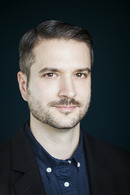Responsibilities
I am an historian of Europe and the US. I am interested primarily in the history of the sciences and the humanities from the Renaissance through the nineteenth century. I have three main research foci:
(1) the changing relations between the sciences and the humanities in Europa and the US;
(2) the architecture of knowledge institutions in Europe in a global perspective;
(3) the scholarly practices of reading and note taking that were in use across the porous disciplinary boundaries of the early modern "Republic of Letters" and their relation to "scientific" observation.
I am currently working on two book projects: the first, contracted with Princeton University Press, is a history of the divide between the sciences and the humanities and focuses on the long nineteenth century. The second, contracted with Amsterdam University Press, is a collected volume that I am editing with Itay Sapir (Montréal) on "Epistemological Excess in Early Modern Art and Science: Coping with Copia".
I am also in the process of having my first book translated into English. The English version is contracted with Johns Hopkins University Press. In October, 2018 I received the "Sonderpreis" of the translation funding program "Geisteswissenschaften International" for this book.
I am speaker of the reserach group "The Two Cultures of Science" at Junge Akademie, one of the editors of the international journal "Berichte zur Wissenschaftsgeschichte" / "History of Science and Humanities" and serve on the Advisory Board of the "Journal for the History of Knowledge".
Contact
Visiting Address: Historicum, Schellingstr. 12/ Raum K 023
Room:
K023
Phone:
+49 (0) 89 / 2180 - 5476
Email:
Fabian.Kraemer@lmu.de
Office hours:
Please contact me via e-mail for an appointment
Research Interests
- The (pre-)history of the "two cultures" (C.P. Snow).
- Architectures of Knowledge in Europe in a global perspective
- Learned reading and writing practices and their relation to "scientific" observation in the Early Modern study of nature.
- Copia and varietas, planitude and variety, in Early Modern Art and Science.
- History of biology and medicine.
- History of monsters.
- History of the book.
- Scientific images.

